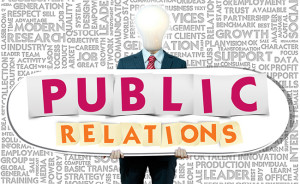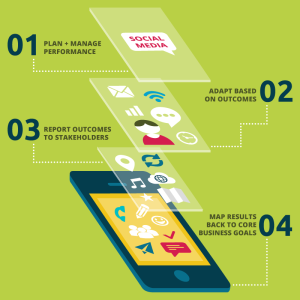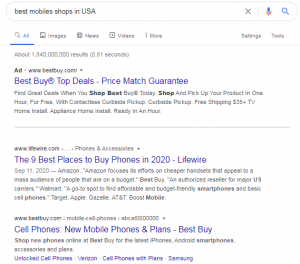
When we talk about inclusion today, we think of identity markers such as race, class, ability, and sexual orientation. But another important consideration is neurodiversity, which refers to the different ways in which people’s brains interact with the world around them. This facet of inclusion is gaining traction, but there is still a lot to be done in terms of designing workplaces that not just accommodate, but also nurture, neurodivergent employees.
The full scope of neurodivergence is still under debate, but it includes a number of psychological profiles, with autism, dyslexia, and ADHD being prominent examples.
It’s estimated that between 10 and 20% of the global adult population are neurodivergent, but with a steadily increasing number of diagnoses across the world, it’s clear that there are more neurodivergent people in the workforce than we may have initially thought. So, what should businesses and team leaders be doing to design teams that are more welcoming to neurodivergent colleagues? Below are a few tips from experts that will make work more accessible for all employees.
Make process accommodations.
A process accommodation is a change in the way a team approaches a task–how you run a meeting, or the way work is divided across a team. Joseph Riddle, director of Neurodiversity in the Workplace, a non-profit that matches neurodivergent talent with employers like Dell and SAP, offers a few examples of process accommodations below. A common thread amongst them, however, is reducing what Riddle calls “hidden curriculum:” situations where neurodivergent employees have to guess context, information, tone, and so on.
Offer various channels of communication.
Yolanda Etrata, a dyslexic communications professional, says: “One of the main ways my dyslexia shows up at work is through my auditory memory – listening to, and retaining, new information is hard for me, as is sequential information, like the steps to complete a project. Because of this, I can miss some bits when taking notes, so I ask my managers to recap instructions for me in an email to help me fully understand the task,” she says.
Make written communications easy to consume.
Riddle recommends keeping written messages simple. For example, dyslexic people may have trouble reading through large chunks of text, so he suggests approaching emails in a TL;DR (too long, didn’t read) format–bullets over paragraphs, and section headers, as needed. Similarly, ADHD can cause people to get overwhelmed by a bloated inbox, so it might be worth grouping comments in one message, where possible.
Empower people with preparation.
Etrata worries about presenting or reading out loud in meetings as she can get lost in the text. When managing people like her, Riddle recommends sharing an agenda for meetings in advance. “Anxiety is a massive by-product of neurodivergence in the workplace, and giving your employees a chance to prepare can greatly reduce the stress,” he says.
Help employees identify and understand neurodivergence.
Steph Johnson, a tech executive with Tourette’s, recalls how when she acknowledged her condition at a job early in her career, her CEO expressed relief that her tics were a medical condition and not a sign of under-confidence. That accelerated her “coming out” at subsequent jobs. “I couldn’t stand the idea that someone would think of me as less capable and confident at my job than I was because of Tourette’s,” she says.
Since then, reactions to her condition have been more positive. At her last job, she gave a talk on neurodiversity at work to an overwhelming response. “I got so many messages from fellow neurodivergent employees, thanking me for making them feel seen and safe at the company. It mattered that they could see someone like me in a senior position.”
Her advice to companies is to make neurodiversity visible. “A company telling me they can do ten different things for me means nothing if I can’t see, or hear from, anyone else like me on staff–especially at the leadership level,” she says.
Toward this, Riddle says companies should launch awareness programs even if they don’t know of any neurodivergent people on staff. Not only will this raise awareness amongst neurotypical people, it will also help those that may be struggling quietly, or that may not yet know they are neurodivergent. “You need to create systems of support, like training and ERGs, so people know you are a safe space they can open up in.”
Etrata thinks this is critical because not enough people understand what neurodivergence looks like in the real world. “I’ve seen neurodivergent people often get called ‘weird’ for their social behaviors, or ‘lazy’ when they were working slower than the typical employee. We need to train more people to spot neurodivergence in day-to-day life.”
There is no playbook on how to manage neurodivergence.
“If you’ve met one neurodivergent person, you’ve met one,” says Nathan Whitbread, who runs a coaching firm specializing in neurodiversity in the workplace. To be a good manager to neurodivergent people, he recommends catering to the individual, and not generalizing learnings across the many profiles found within the community.
Another crucial point Whitbread makes is around overlap. “Often, you’ll find more than one neurodivergent trait in a person, so it’s important to not put people in tight boxes. Instead, trust that people know how to manage their work, and let them tell you what they need to get the job done.”
Etrata agrees: She was diagnosed four years ago, but she’s still learning about, and adapting to, her dyslexia, which means the support she needs changes with time, with a new title, a new team or a new work environment. Her final advice: “The way to be a good manager to neurodivergent people is the same as being a good manager otherwise: Get to know your [employee’s] needs, be empathetic, and provide them with support. It’s not that different.”
Puneet Sandhu is a London-based writer, marketer, and DEI executive.
Fast Company , Read Full Story
(36)





